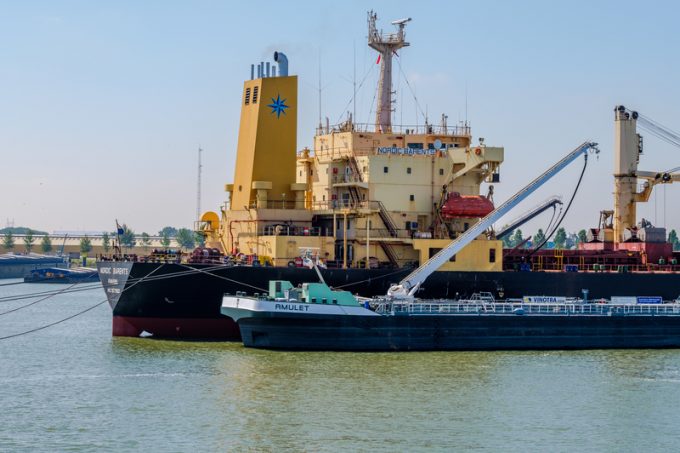UK eyes expanding its ETS to deepsea shipping – closing EU loophole
A loophole allowing ocean carriers to dodge ETS charges via a port call in the ...

Unlike EU ETS, FuelEU has the rare distinction of being a regulation from which carriers stand to gain – and it could even engineer a situation in which ships are “paid to bunker” green fuels, explained Albrecht Grell, OceanScore MD, this week.
FuelEU’s ‘pooling’ provision will ...
Predatory rivals circle as the ripples from DSV's Schenker buy widen
Latest Israeli attack on Iran a threat to box ships in Straits of Hormuz
DHL Express facilities in Canada forced to shut down by strike
Industry concerns rise after yet another box ship on fire off Indian coast
New Middle East conflict brings airspace closures, flight chaos and oil price worry
More legal trouble in India for MSC: feeder vessel detained after box ship disasters
Return of downward pressure on container spot freight rates
BYD launches logistics subsidiary – and eyes ports and shipping sectors

Comment on this article